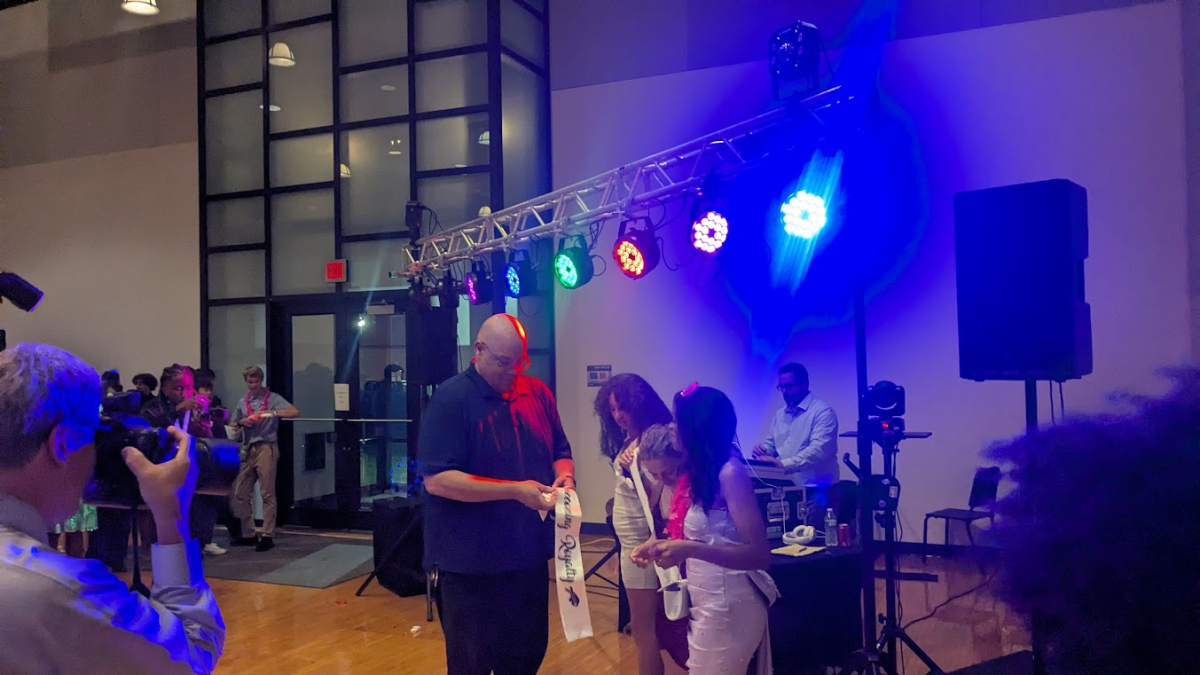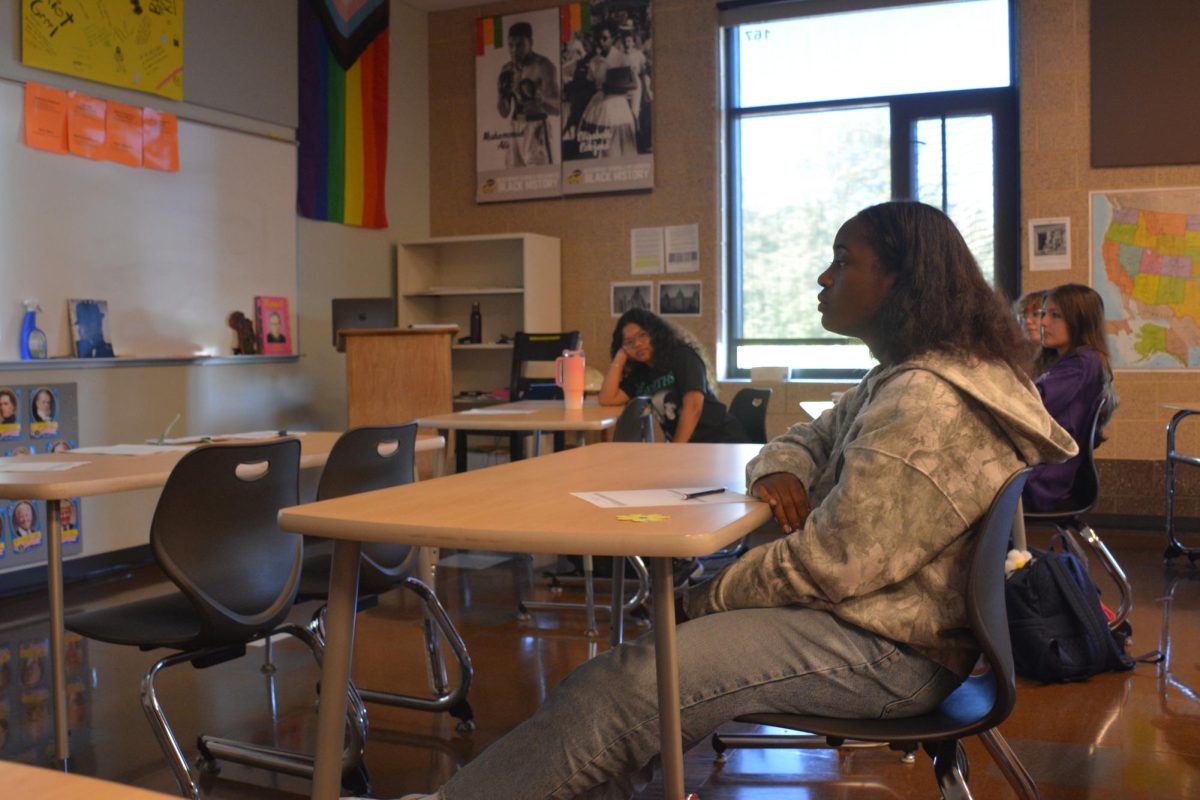After Biden’s horrific debate performance in June, I immediately began to imagine a Harris presidency. During our weekly talk about politics, my dad and I toyed around with the idea, concluding that despite seemingly insurmountable odds, she could do it.
I felt a wave of hope after Biden dropped out of the race, realizing that I would not only get the chance to see a female president, but a female president who looked like me. Every day I would get fired up by another news story. I rushed downstairs to motivate my mom. “Mom, you guys raised over $1 million for Harris!” referring to the Zoom call in July composed of over 44,000 Black women that raised over $1.5 million dollars for the vice president. “Mom, look who endorsed her!”
Fast forward to Nov. 6, after a 16– hour day of working the polls, I opened my laptop to see that Harris was losing in almost every swing state, and she didn’t even have a big margin in blue states such as New Jersey and Virginia. Disappointed but still holding on to a glimmer of hope, I decided to go to bed and check things out in the morning.
I woke up at 5:30 (I guess even my circadian rhythm detected something was off) to discover that Trump won the election. I sat in a state of shock for a few minutes, and eventually made my way to school, not really processing anything. Eventually, lunchtime rolled around, and it felt like something in my body broke. My tears were coming out faster than I could control, and I rushed home for my free period and cried on my couch.
I reflected on Trump’s first term, largely composed of unfulfilled promises such as what he dubbed a “Muslim ban”, which was blocked by federal judges, and his infamous border wall, which resulted in a several-week government shutdown after a failed attempt to obtain funding. I also dwelled on how, in 2024, a man with 34 felony convictions, 27 sexual assault allegations, two impeachments, and one incitement of insurrection on our own country could win the vote of over 74 million people.
After I had processed everything the next day, my first initial thought was, “What happened?” So, after consuming countless articles, pieces by political strategists, YouTube videos and podcasts, this is my analysis on how Trump won the White House again.
Voter demographics are rapidly changing
In the 2024 election, many voter groups, specifically young men and Latinos, saw a shift toward president-elect Trump.
In 2020, 42% of men ages 18-29 voted for Trump, however, in the 2024 election, 56% voted for the former president. Latinos saw a similar shift, with 32% voting for Trump in 2020 and 45% voting for him in 2024. Analysts attribute this shift to a number of reasons, most notably being the Trump campaign’s strong appeal to masculinity in contrast with the Harris’ campaign’s approach to focus on women’s rights.
An article published in Glamour revealed that many white men voted for Trump in part because they felt their identities being targeted. To them, Harris’s campaign made them feel guilty for being straight white men, while Trump’s campaign made them feel more accepted. They felt like the Harris campaign made them feel bad for being straight White men, while the Trump campaign made them feel included. President-elect Trump heavily embraced masculinity throughout his campaign, from participating in a live stream with 23-year-old right wing streamer Adin Ross to featuring former wrestler Hulk Hogan at his controversial Madison Square Garden rally.
In fact, in an article in The Atlantic, Helen Lewis referred to Trump’s attempt to appeal to young men as a “red-pill podcast tour”. The term “red pill” is derived from the 1999 film The Matrix, which in this context refers to the “awakening” that men are actually “subjugated by women under feminism.” Red pill content refers to media that pushes misogynistic, homophobic, and oftentimes white supremacist ideas.
“In the past few months, Trump has become a fully fledged podcast bro, talking with the livestreamer Adin Ross about the prosecution of the rapper Young Thug, shooting the breeze with the YouTuber turned wrestler Logan Paul about German shepherds, and interrogating the former stand-up comedian Theo Von about cocaine,” Lewis wrote.
“His running mate, J. D. Vance, meanwhile, sat down with the Nelk Boys, where he manspread luxuriantly between cases of their hard seltzer, Happy Dad,” she added.
Additionally, the Glamour article revealed that many young White men feel that they cannot share their political opinions, specifically in academic spaces, without feeling ostracized or receiving a bad grade.
The reason for the shift in Latino voters was slightly different. In an interview with NPR’s Juana Summers, political consultant Mike Madrid explains that Latinos are becoming more of an “economic populist voter,” rather than becoming more conservative, which is an important distinction to understand.
Therefore, although president-elect Trump often used derogatory language when describing immigrants and spoke frequently about mass deportations on the campaign trail, many Latino voters still focused on his economic promises, like removing taxes on tips, closing the border and imposing tariffs on other nations. Additionally, the podcast explains that Latinos are younger than the average age of the US population as a whole.
According to the interview almost 40% of Latinos are under the age of 30, and almost 20% of the Latino electorate voted for the first time this election, and they are already a larger electorate than Black Americans. Many of these voters are third and fourth generation and American born, therefore seeing themselves as more distanced from the immigrant experience. Madrid explains that we should interpret the 2024 election as Latinos leaving the Democratic party rather than being compelled by the Republican party.
Celebrity Endorsements: A Hard No
If you take a time machine back to 2012, you’ll see a long list of celebrity endorsements for former President Barack Obama, from Anne Hathaway to Ludacris. As a matter of fact, celebrity endorsements have long played a role in presidential elections, such as entertainer Al Jolson endorsing former President Warren G. Harding in the 1920 election or football legend Jim Brown endorsing former president Richard Nixon in 1968.
However, today, it is unclear whether or not celebrity endorsements resonate the same with voters. Americans’ trust in the media is currently at an all time low, and with recent waves of celebrity conspiracy theories following P. Diddy’s trial, celebrity endorsements may not have been the best way to gain voters. I mean, when Cardi B is standing in her $800 red bottom heels telling a swing state voter who is struggling to put food on the table to vote for Kamala Harris, what are they supposed to do?
The Unshatterable Glass Ceiling
Although there were clearly many factors that went into Harris’ loss, it would be naive of me to write this article and not acknowledge the role that her gender and race played in this election, on both sides. For many on the left, specifically Black women, a Harris presidency represented hope.
It showed us that despite the name calling, from “DEI Shaniquas” to implications that Harris performed sexual favors to get to the White House, we could do it. Despite our voting rights not even having been solidified into federal law for 100 years, with many of our grandparents and great-grandparents not being able to vote, we could hold the highest office in the land.
However, for many on the right, specifically for president-elect Trump, Harris’ race and gender were something to exploit to appeal to his base. The Trump campaign repeatedly attacked Harris’ gender, with one speaker comparing her to a prostitute at his Madison Square Garden Rally.
For his female opponents and women in general, the president-elect has time and time again unleashed slews of deeply sexist, graphic, and often violent insults. Don’t get me wrong, I do not believe that Harris lost solely because she’s a woman of color. However, I do believe that we live in a country that is not ready for a female president, which is evident by the role that masculinity and gender attacks played in Trump’s campaign.
However, when it comes to attacking Joe Biden, it’s as simple as “sleepy Joe” and “crooked Joe.”
Additionally, the president-elect frequently questioned Harris’ Indian and Black background.
“She was always of Indian heritage, and she was only promoting Indian heritage,” Trump said during an interview with the National Association of Black Journalists. “I didn’t know she was Black until a number of years ago, when she happened to turn Black, and now she wants to be known as Black. So I don’t know, is she Indian or is she Black?”
A survey administered by Carnegie Endowment before the election revealed that 60% of Indian Americans intended to vote for Harris, compared to the 70% of Indian Americans who voted for Biden in the 2020 election. The survey also found that less than 1 in 10 Indian Americans were motivated to vote for Harris because of her South Asian heritage.
Running in the Dark Shadow of Joe Biden
When asked on The View if she would have done anything differently than Joe Biden, Harris responded, “There is not a thing that comes to mind…”
For me, even as someone who viewed Biden favorably in 2020 and recognizes his administration’s accomplishments in the past four years, especially regarding the economy, I would have preferred if Harris had admitted something she would do differently than Biden. This may have helped to set her apart from Biden, giving her more visibility.
However, since she was plunged into the race less than 100 days before the election, it was clearly difficult for Harris to distance herself from President Biden, especially with Trump playing into voters’ fears regarding the economy and immigration for a large chunk of his campaign. Under President Biden, unemployment has been under 4% for over 28 months, 16 million jobs have been created, and many cities have seen the lowest violent crime rates in over 50 years.
However, according to CBS, 70% of Americans still say they are struggling financially. Although no economic crisis is directly attributable to a United States president, the president is often the first person we look to in undesirable situations. So, over the last 100 days when President Trump asked his audiences “Are you better off now than you were four years ago?” and promised tax cuts to all, low prices, and new jobs through mass deportation, many Americans trusted him.
Harris simply did not have the time to create the strong and comprehensive economic plan she needed or to distance herself from Biden to counter Trump’s fear mongering and the real economic frustrations of many Americans.
The Cheneys + Defund the Police = …Confusion?
While discussing the results of the election with my mom, I initially came to the conclusion that the campaign that Harris ran was too liberal for the average American voter, and that she played into identity politics in a way that didn’t resonate with many (for example, young white men).
Though at many times taken out of context, phrases like “defund the police” were linked with Harris’ campaign, and she spent a significant amount of time at her rallies speaking about abortion rights. She was also endorsed by progressives such as Representatives Alexandria Ocasio-Cortez and Ilhan Omar and Senator Bernie Sanders.
However, after reflecting on Harris’ campaign, it seems to me like at some points, she was doing the exact opposite of being “too liberal.” Harris flaunted being a gun owner, played with the idea of putting a Republican in her cabinet, created camo hat merch, spent time campaigning with former Republican Representative Liz Cheney and touted her endorsement from former Vice President Dick Cheney.
Granted, bringing Liz Cheney to a rally in Michigan, the state with the highest percentage of Arab-American voters, may not have been the best idea, as many criticize the Bush-Cheney administration’s approach to the Iraq invasion in 2003, which resulted in significant human and financial costs.
Nevertheless, Harris, along with plenty of other Democratic candidates vying for House and Senate seats, attempted to appeal to moderate Republicans, and ultimately ended up failing.
Maybe Harris didn’t seem genuine enough, as the attempt to appeal to both Republicans and Democrats made it difficult for voters to gauge what she did and didn’t support. Or, maybe Trump swaying to Ave Maria and making vulgar claims about Arnold Palmer was more compelling. It’s hard to tell, and Democrats have a lot of tough decisions to make if they want to win the White House back in 2028.
Conclusion
Regardless of my disappointment with the outcome of the election, as an 18-year -old girl with hopes of working in politics one day, it would be a lie to say this election wasn’t exciting for me.
Some days I went to bed feeling more hopeful than ever, other days I laughed, and some days, such as the day after election day, I cried. I learned more about politics, history, psychology, and sociology than I ever have in my life.
I went down U.S. Presidential history rabbit holes, had deep conversations with my family about the Reagan years, and I learned about the voting history of different counties. I do not think Harris ran the perfect campaign; however, I am eternally grateful to her and cannot think of a better and more realistic candidate.
This election gave me hope. It showed me a woman that looks like me running for the highest office in the country, with over 30 years of experience in all three branches of government, given 100 days to save a dying presidential campaign. Above all, I still have hope for the future- for 2026, 2028 and for our country.


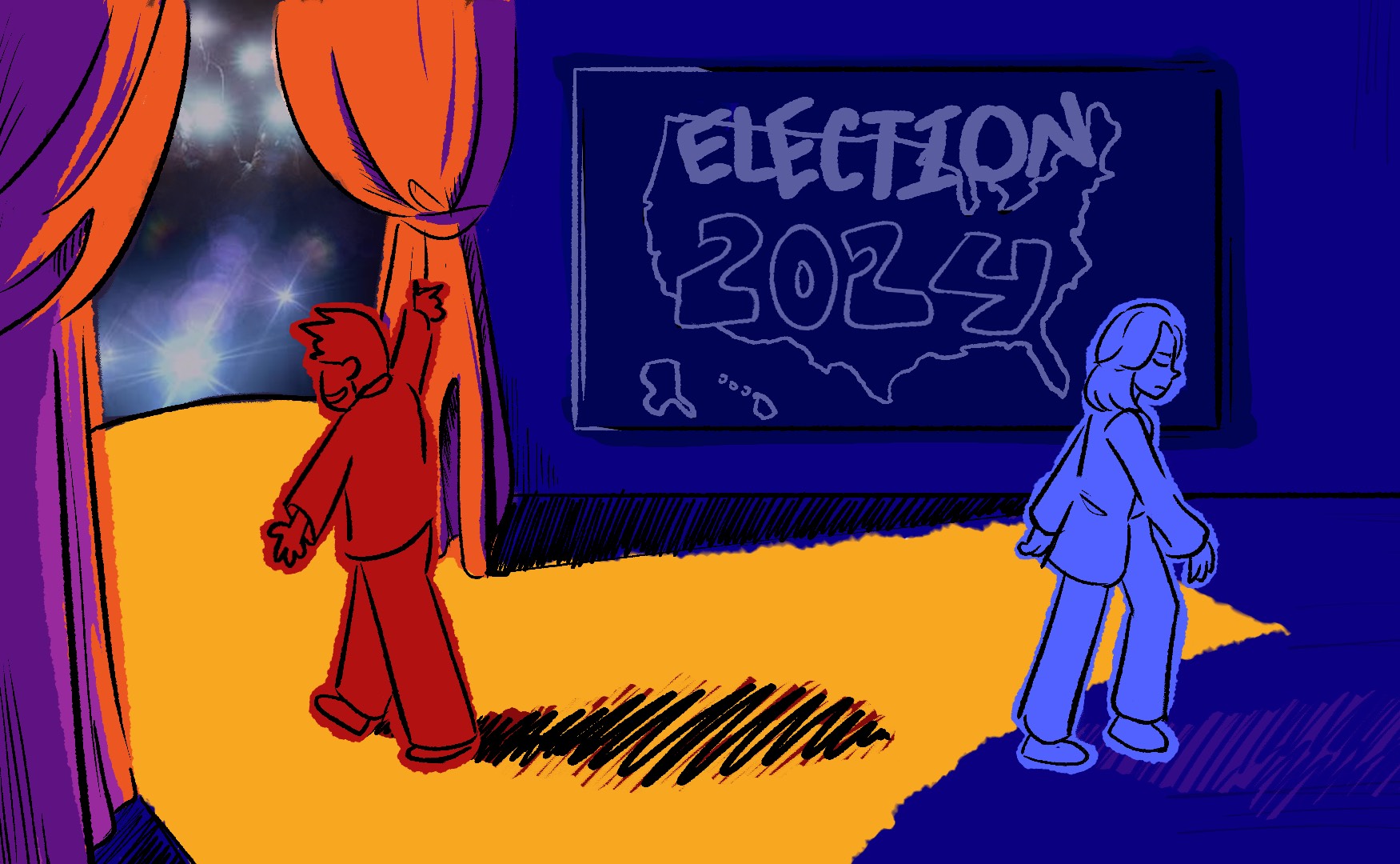



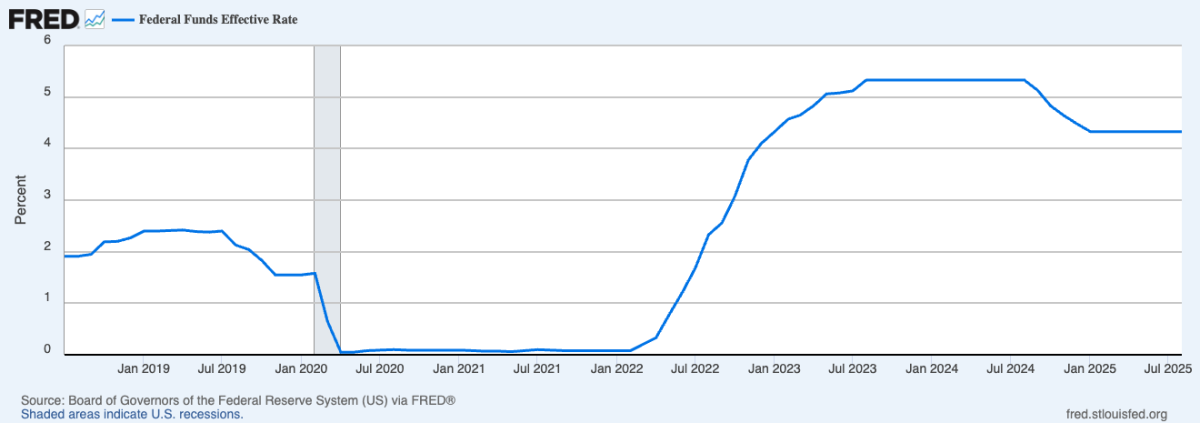
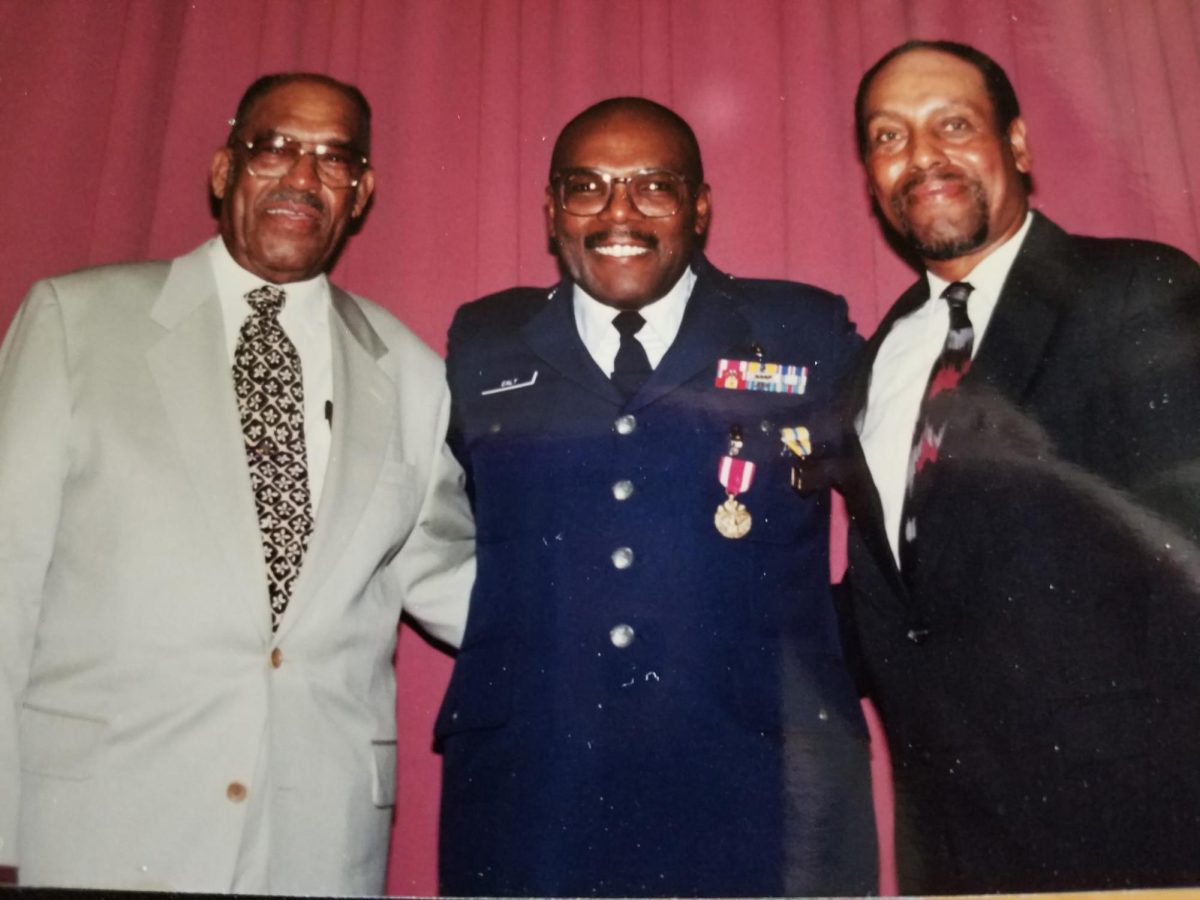


![“My parents have always said that education is important. My parents are Chinese immigrants, I'm Chinese American, [and that's a] value that has always been ingrained in our community,” said Senior Lyndia Zheng, pictured with Tony Zheng](https://bcomber.org/wp-content/uploads/2025/10/DSC_4244.jpg)


